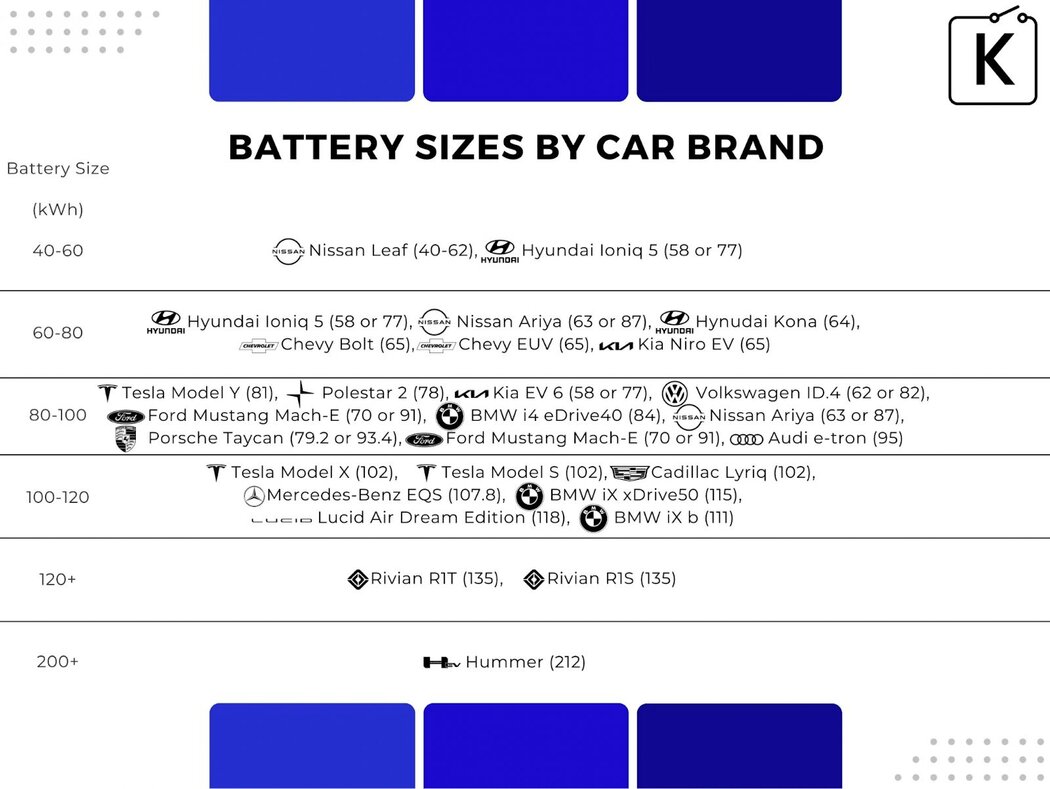When you think about purchasing an electric vehicle, an undoubtedly important question to ask is how you’re going to charge it — and how much does it cost to install a home EV charger, anyway?
Charging at home is almost always the most economical option. And, luckily, getting the right EV charger up and running in your home is also pretty economical in the vast majority of cases.
According to J.D. Power, the average in-home EV charger installation will cost about $1,200 to $2,500.
We’ve found that estimate pretty accurate, based on our work connecting licensed electricians with home owners all across North America to complete hassle-free EV charging installations.
And in numerous cases, installation can be even more affordable.
What should you expect to spend on your own home EV charger installation process?
We’ll help you determine just that by walking through:
⚡ Factors influencing the cost of home EV charger installation
⚡ The range of costs for charger installation
⚡ Why you should charge at home
⚡ The cost of EV chargers themselves
⚡ How to save on an EV charger + installation
Main factors influencing the cost of a home EV charger installation
In our experience, there are a few principal cost drivers when it comes to home EV charger installation.
Note that this doesn't account for the cost of the charger itself, thought that is something we’ll discuss later in this article.
Length of wiring required
The distance from where you want to install your EV charger to your home's electrical panel is typically the biggest cost factor for most modern homes.
For the most part, residential installs within modern homes require about 30 feet or less of wiring. Longer than about 15 feet in most cases, your install fee will start to creep up.
Complexity of wiring run
Longer wiring runs isn’t the only factor that will impact your cost.
Wiring jobs that require your electrician to work with obstructions such as going through walls or floors, trenching into the ground, cutting through concrete, working in restrictive environments like attics and crawl spaces, wiring around objects, etc. will also increase the cost of the install job.
While some electricians can work with some of these obstructions, specialists may need to be brought in if it’s an especially large job or it’s outside of your electrician’s wheelhouse.
The condition of your electrical panel
Once in a while, some small electrical upgrades will need to be made to ensure your panel can handle the increased electrical load of an EV charger.
And even more rarely, electrical panels will need to be replaced entirely due to age, condition, or capacity.
Wondering if you’ll fall into the “needs upgraded” category? Our article Should I replace my electrical panel? can help you make that call.
When you work with Kopperfield to request a quote from a local, licensed electrician, you’ll share a picture and some other details about your electrical panel. If necessary, your provider will even come out for an on-site consultation. Through these steps, they’ll have a good idea of the condition of your panel and will be able to tell you ahead of time what updates are needed and what cost to expect.
Local permitting requirements
Are permits required for EV charger installations? Simply put, usually.
A permit can help ensure your install is completed in accordance with local safety laws and codes, that you’re eligible for rebates and incentives, and that your home insurance company won’t reject a claim in the event of an accident.
The process and cost of obtaining an electrical permit varies widely by location, ranging from $200 to about $1,000.
This is another area where Kopperfield steps into help. Our expert contractors manage the permitting process and factor all associated costs into their quotes.
Three core cost buckets for home EV charger installation
With a better understanding of the main factors that can influence pricing, let’s finally dig into what you can expect to spend when getting an EV charger installed in your home.
Most common case: $2k or less
The vast majority of installations are quite straightforward.
In 2022, among jobs facilitated by Kopperfield, nine out of ten customers paid less than $2,000 to install level 2 chargers at home.
This type of install is so simple that we call it the "cookie-cutter" install. Little more is needed than under 30 feet of wiring connecting your home's electrical box to your charger.
Typically, these simple installs don't require anyone to come to your house before the installation date. In fact, 94% of all of our customers in 2022 were able to book their installs entirely online, no site visit required before work began.
Occasional cases: $2k to $4k
In about 7% of our jobs completed in 2022, homeowners paid $2,000 to $4,000 to get a level 2 home EV charger installed.
In most of these cases, the job required a longer-than-normal wiring run from the home's electrical box to the charge and/or light electrical modifications to handle the increased demand.
Exceptional cases: As much as $7k
Extreme cases that cost up to $7,000 happened around 3% of the time in 2022.
These exceptions to the average typically happened in older houses with outdated wiring and electrical boxes. They needed heavy updating or replacement to ensure an EV charger could be safely installed and run.
Why charge at home instead of at public chargers?
The reasoning here is simple.
Far and away, the least expensive way to charge an EV is at home.
In almost all cases, the price for home electricity is cheaper than electricity pricing at charging stations. The average charging savings at home versus at public chargers ranges from 30% to 50%, some owners see even more of a reduction.
This is partly because charging station owners markup the cost of electricity to earn profit. But it’s also due to the fact that around 90% of at-home charging happens overnight, according to automotive journalist John Voelcker. At night, a lot of utility companies offer cheaper rates due to lower demand.
For example, Xcel Energy in Colorado is in the process of switching all users to their new time of use rates:
- On-peak times: 3 to 7 p.m. on weekdays, no holidays
- Mid-peak times: 1 to 3:00 p.m. on weekdays, no holidays
- Off-peak times: all other times
XCEL charges 2.7x the off-peak rate during on-peak times in the summer. In other seasons, they charge 1.7x the off-peak rate at on-peak times.
Further consideration: The cost of your EV charger itself
Of course, a big part of the equation with EV charging is the cost of the charger itself.
There are all kinds of chargers for all kinds of EVs that charge at all kinds of rates. It’s difficult to tell you exactly how much a level 2, hardwire-ready charger (learn why hardwiring is better) is going to cost you. But, for the most part, in 2023 they come in between $400 and $800.
For more guidance on choosing the best EV charger for home, check out our article on how to pick the right charger for your electric vehicle.

How to save on EV chargers & installation
There are a few methods you can try to cut some of the costs associated with your EV charger install, as well as the charger itself.
Apply rebates and incentives
One way to save, on both your EV charger itself as well as its installation, is by applying any incentives provided by your local government and/or electricity vendor.
For example, in Washington state, Tacoma Public Utilities offers customers a $400 rebate for the installation of a residential level 2 EV charging station. Clark Public Utilities gives out up to $500 in rebates for purchasing and installing level 2 EV charging in residential, commercial, and industrial settings.
As you can see, there are often several options for savings in any one area. It can take a lot of time figuring out the best options for you if you don’t know how to navigate the system. That’s why the pro electricians you partner up with via Kopperfield will do this research for you — including information on available incentives right inside their proposals.
Minimize install complexity
Another method for saving on your EV charger installation is looking back at the key factors that impact costs. Namely, wiring run length and complexity.
Here are some things you can do to mitigate those factors and achieve a more affordable install:
- Change where you get your EV changer installed so that it’s closer to your panel
- Figure out how to avoid obstacles like walls or trenching
- Take care of obstacles on your own before your electrician becomes involved
- Use an energy management device to a avoid a service upgrade
- Select a smaller, slower charger so you don’t need a service upgrade
Get your EV charger install quote today
How much does it cost to install a home EV charger? The answer is, it depends.
Pricing varies by market and other factors, like wiring complexity, panel condition, and permitting requirements.
In this article, we’ve done our best to account for all those elements and provide you with a reasonable idea of what to expect when it comes to the cost of installing your level 2 home EV charger.
To figure out exactly how much getting your home charger installed is going to cost, just request a quote from the best electricians in your area through Kopperfield. It will take you less than 5 minutes, and we will get a quote to you within a business day or sooner.

Related articles

